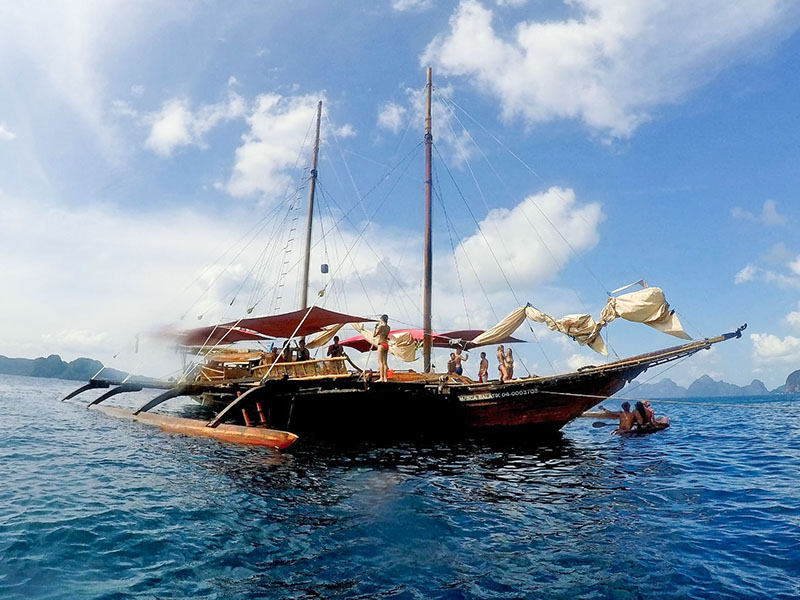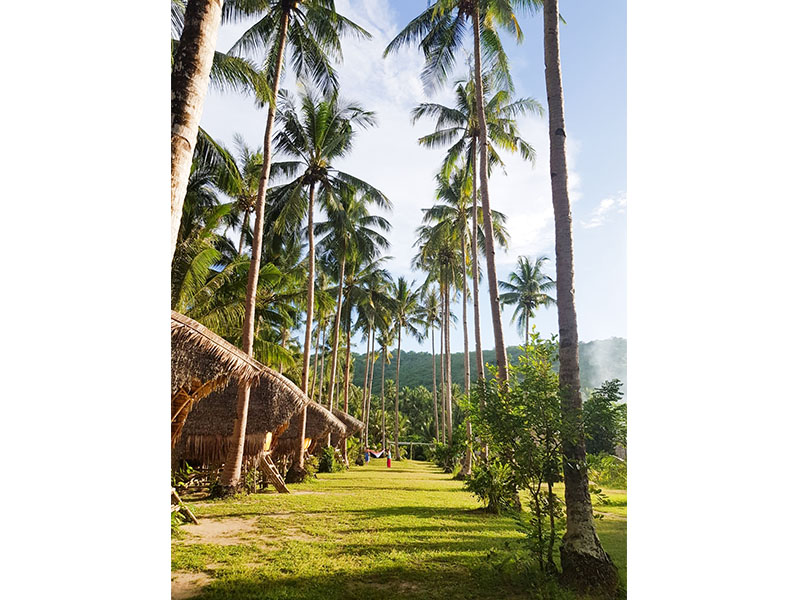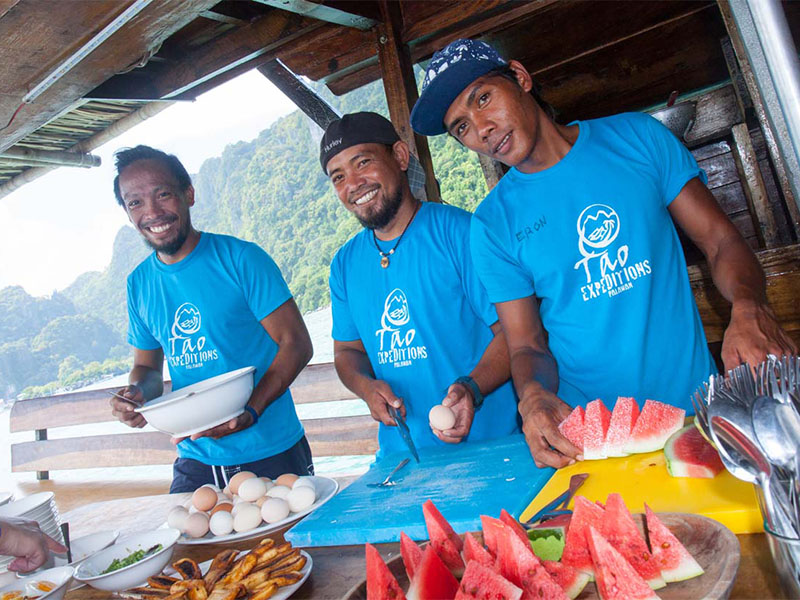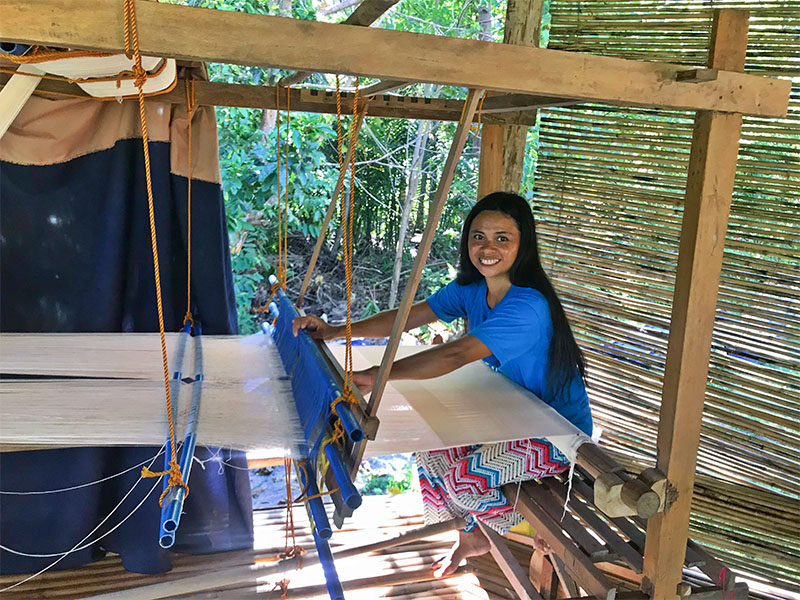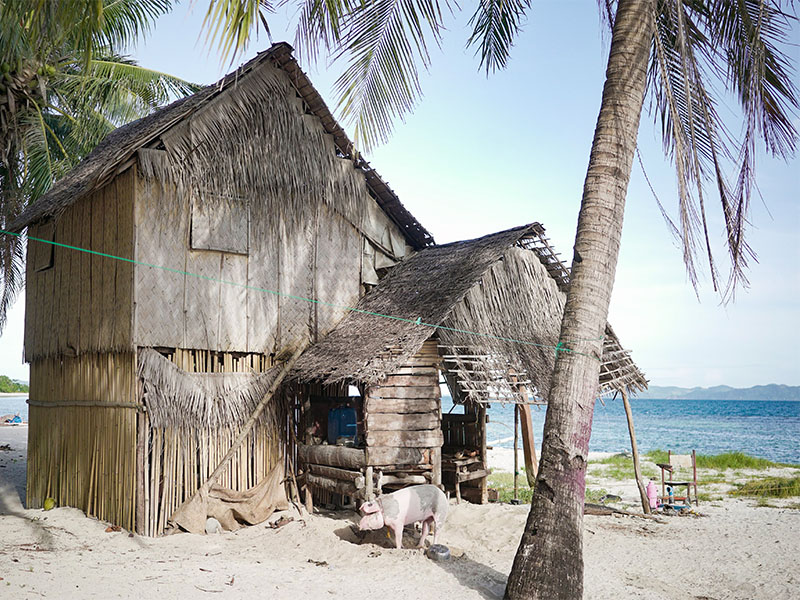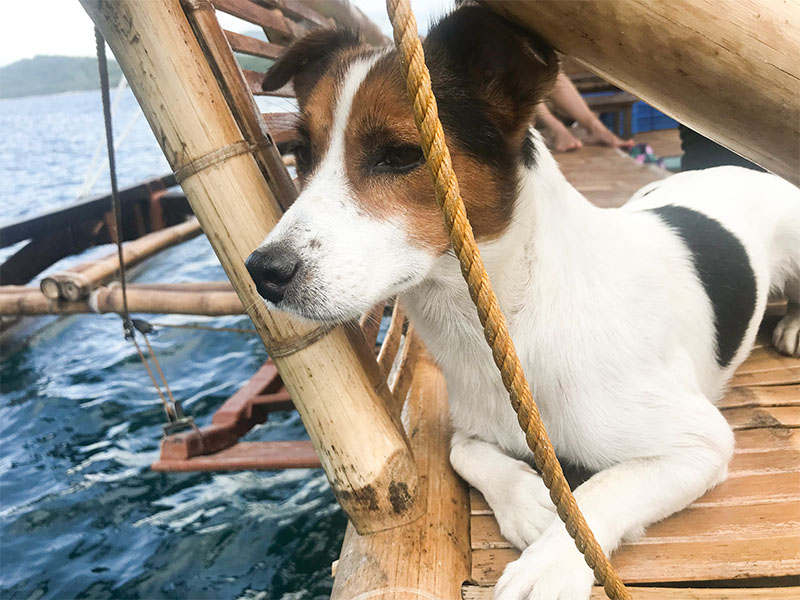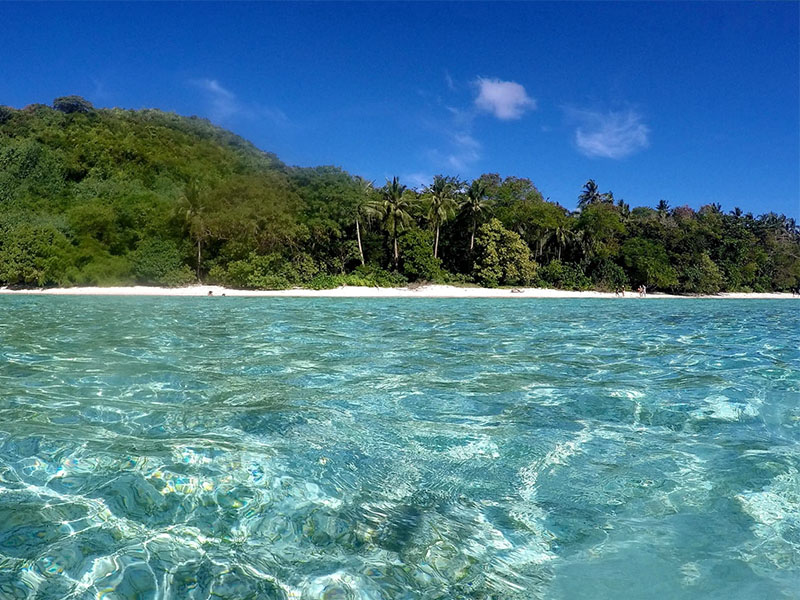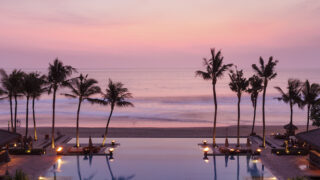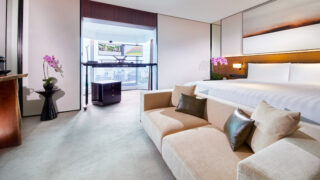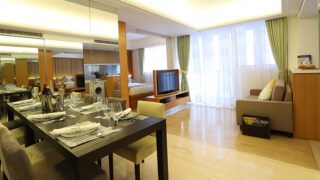Christine Amour-Levar of HER Planet Earth goes on an adventure of discovery and learning – sailing in the Philippines!
Our journey
They say the best journeys run deep. They reconnect us with what it means to be human. Our sailing expedition to one of the most remote and astounding corners of the Philippine archipelago, Palawan, turned out to be exactly that; a deeply inspiring and revitalising voyage of self discovery and exploration.
We spent an adventurous week sailing on a stunning traditional 74-foot paraw sailboat, the largest in the Philippines. The boat revives an almost forgotten Filipino maritime culture, over a thousand years old. We camped on deserted white sand beaches, swam through turquoise waters sprinkled with brilliant tropical fish, snorkelled around World War II shipwrecks, sampled native delicacies and simply revelled in the purity and wilderness of one of nature’s last ecological frontiers.
Our team
Our HER Planet Earth team of explorers consisted of ten intrepid women of diverse careers and backgrounds, from all corners of the world. What brought us all together in the first place, apart from our adventurous spirit and a yearning to push boundaries, was a genuine desire to empower underprivileged women and to protect our beautiful planet.
Setting off
We began our expedition in El Nido in Palawan, and made our way to Coron, meandering through the beautiful Linapacan island group. From the onset, the weather and tides dictated the itinerary and schedule. The wind in this part of the world blows strong, and reliably. It’s sunny almost all the time, too. A storm prevented the boats from setting sail on time from El Nido. But happily the weather gods were on our side, and we embarked with the sun shining brightly in a pale blue sky.
The fair weather lasted throughout most of our trip, allowing us to combine stretches of pure, calm sailing with exploration of the islands, reefs and caves carved into towering grey limestone cliffs estimated to be over 250 million years old. Palawan is a UNESCO Biosphere Reserve. It literally looks like a Jurassic world, with its dramatic jagged rock faces and lush, green tropical foliage. And as we reached our base camp on the first night, we left the boat safely anchored in the bay, while we swam noiselessly ashore with the full moon suspended in the pitch-black sky above our heads to guide us forward.
Working with Tao
Founded by eco-conscious British and Filipino entrepreneurs, Tao, our local partners on this expedition, started a decade ago by running sailing trips across the islands, establishing a network with local families and fishermen. Today, they’ve grown it into a social enterprise that aims to immerse participants into true Filipino island life. At the same time, they support the remote communities of Northern Palawan.
In Tagalog, the official language of the Philippines, Tao means “human”. It’s pronounced as “ta-o” – two syllables not one. As someone who grew up in the Philippines and who has travelled to many parts of the country, I consider their expeditions, while not for the faint of heart, among the most authentic things you could ever experience in these parts.
The foundation
The highlight of our trip was discovering Tao’s Kalahi Foundation & Farm, whose projects focus on the advancement of women, children’s education, organic farming and local traditional crafts in this precious region.
Founded in 2008, the Foundation works like an extended family in a sustainable micro-economy across a 200km stretch of islands. It helps create jobs and provide opportunities for women’s groups through food production, water security, schools and scholarships, offering alternative means of livelihood and access to education among families challenged by isolation and the collapse of the fishing industry. The foundation works with what is already available in the islands, utilising abundant resources and harnessing existing skills to come up with sustainable solutions.
Tao’s main base camp is on Culion Island, where we stayed for one night. From there, they run a children’s school, and a women’s association that focuses on teaching locals how to give massages, weave and make organics soaps and shampoos. The foundation also educates the islanders on responsible and sustainable farming. This includes maintaining an organic farm, domesticating animals and also producing their own vinegar, one of the main ingredients in Filipino cuisine.
Accommodation, meals and a mascot
During our trip, we slept in bamboo huts on the beach. The huts (called tukas by locals) are built to survive strong winds and even typhoons. Because they’re not anchored to the ground by concrete bases, they tend to bend with the wind and occasionally get blown away during typhoons. Hopefully not too far – so that they can be picked up, straightened out and re-used after the storm has passed.
For showers on the islands – if we had access to fresh water – we would wash using a bucket in makeshift outdoor showers or at a local spring. At night, the crew – who were nicknamed “The Lost Boys” and who truly were the heart and soul of this adventure – would build a bonfire. They’d then bring out their guitar to sing along with everyone.
Everything we ate during the expedition was delicious and prepared with the freshest ingredients. These were found on the islands, either farmed or grown in the wild. A typical meal consisted of fresh fruit and greens, rice, and fish or pork. Seafood was bought every morning from local fishermen. And meat was from livestock raised on the Tao farms and by surrounding communities. Most importantly, fruit and vegetables are grown without harmful chemicals here, to minimise the ecological footprint of the whole operation.
One very important member of the crew was a pet Jack Russell named Amo. He answers to no one but his master, Gener, the boat’s Captain. Amo was our little expedition mascot! He was often patrolling the horizon watching out for intruders and making sure he was always the first to get off the boat when we came ashore, jumping eagerly into the transport kayaks before anyone could even get a seat.
Sustainable tourism
As I reflect on our expedition, I realise how important such journeys are to open new perspectives and recalibrate our priorities. They force us to step out of our comfort zone. We grow as adventurers and empower ourselves, so we can in turn empower others. The team and I are deeply grateful for these unique life experiences, because we learn so much about the issues many underprivileged people face around the globe, especially women. It makes us understand how fortunate we are. As a result, we try harder to support this kind of sustainable and responsible tourism.
Indeed, at the heart of sustainable development is a deep respect for the earth and future generations. No matter how remote we feel from the problem, every act in our everyday lives affects our planet’s fragile ecosystem. Climate change and environmental degradation are barriers to sustainable development, augmenting existing inequalities. And gender often remains the untold story in this dilemma.
In many countries, women are among the most vulnerable to climate change and environmental impacts. Partly because they make up the larger share of the agricultural workforce and tend to have access to fewer income-earning jobs. The destructive forces of nature, warped by rising global temperatures, and manifest in typhoons, floods and other extreme weather conditions, can act as negative force multipliers in societies already riven by inequality. While climate change is a global phenomenon, its impact is not spread across a level playing field. In fact, poor people suffer the most. And nowhere is this more apparent than in places like the Philippines.
Unforgettable journey
During our time there, we were privileged to meet authentic and untouched communities. We learnt about their many life challenges, hopes and dreams. Ultimately, such expeditions are exceptional because they’re made up of what each traveller brings with them on the journey. And this gets intertwined with the stories of the people we meet along the way. While “The Lost Boys” did their utmost to look after our every need, it was a voyage through some of the most isolated parts of the Philippine archipelago, with new discoveries awaiting at every turn.
HER Planet Earth is a global women’s advocacy movement headquartered in Asia. The not-for-profit organisation undertakes self-funded expeditions to increase awareness of environmental degradation and raise funds for programmes that empower and educate underprivileged women affected by climate change. Find out more at HERplanetearth.com.
See more in our Travel section!
Subscribe to Expat Living magazine now so you never miss an issue.

